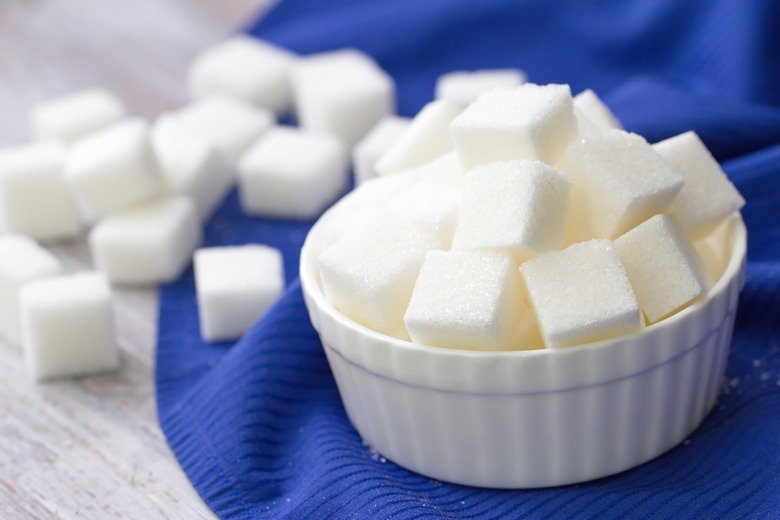How To Convert Degrees Brix To Sugar
"Degrees Brix" is a misleading term, as "degrees" in a scientific context normally refers to either temperature levels or geometric angles. "Degree" in this sense describes the mass fraction of sucrose (table sugar) in solution, wherein 1 degree Brix (written °Bx ) means 1 g of sucrose per 100 g of aqueous solution. When the solution consists solely of sucrose and water, this means that you can calculate the total volume of water present because 1 g of water has a volume of exactly 1 mL by definition. For example, a 100-mL solution measuring 10 °Bx contains 90 mL of water, since the total mass of the solution is 100 g, 10 g of which is by sucrose and 90 g of which therefore must consist of water.
While seemingly arcane, the Brix scale is useful in the culinary world, in particular with wines. Depending on the flavor and specific aims of a given wine, a value of about 18 to 24 °Bx is generally ideal.
It should be noted that although °Bx in theory is a measure of sugar content only, in reality it is a measure of all solutes in a beverage or preparation because of the way °Bx is assessed. In practice, however, the solids dissolved in relevant liquids such as wine contribute negligibly to overall solute content, in the same way table salt for all intents and purposes consists "entirely" of sodium chloride.
To measure degrees Brix, you will need a refractometer, a device that uses light to assess the specific gravity (a measure of density) of an aqueous solution.
Step 1: Calibrate the Refractometer
Step 1: Calibrate the Refractometer
Calibrate the device using distilled water. This should give a reading of zero.
Step 2: Clean the Glass (Prism)
Step 2: Clean the Glass (Prism)
You should ensure that the refractometer surface is clean and dry.
Step 3: Apply the Liquid
Step 3: Apply the Liquid
Place a small amount of solution to be tested onto the prism. A couple of drops is enough.
Step 4: Aim the Refractometer
Step 4: Aim the Refractometer
Look through the eyepiece while you point the prism toward a light source. Do not look at the sun.
Step 5: Get Your Reading
Step 5: Get Your Reading
Focus the eyepiece, and take a reading where the base of the blue color meets the scale. This reading is the sample's Brix.
References
Cite This Article
MLA
Beck, Kevin. "How To Convert Degrees Brix To Sugar" sciencing.com, https://www.sciencing.com/convert-degrees-brix-sugar-5004424/. 4 June 2018.
APA
Beck, Kevin. (2018, June 4). How To Convert Degrees Brix To Sugar. sciencing.com. Retrieved from https://www.sciencing.com/convert-degrees-brix-sugar-5004424/
Chicago
Beck, Kevin. How To Convert Degrees Brix To Sugar last modified March 24, 2022. https://www.sciencing.com/convert-degrees-brix-sugar-5004424/
